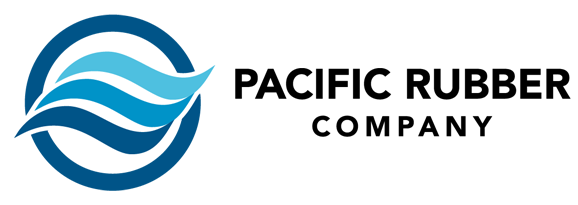ASTM Specifications
ASTM specifications play a pivotal role in the rubber industry by providing standardized guidelines that ensure quality, consistency, and safety in the production and application of rubber materials. These specifications are developed and maintained by the American Society for Testing and Materials (ASTM International), a globally recognized organization dedicated to establishing industry standards across various sectors, including rubber manufacturing. These standards cover a wide range of attributes, from material composition and physical properties to testing methods and performance criteria.
In the rubber industry, ASTM specifications are crucial for achieving uniformity in the production of rubber products. They define the requirements for factors such as chemical composition, tensile strength, elongation, hardness, and durability, among others. By adhering to these specifications, manufacturers can produce rubber materials that meet the desired characteristics, allowing for predictable performance in a variety of applications, from automotive components to industrial seals.
Furthermore, ASTM specifications aid in ensuring product safety and reliability. Rubber materials that meet ASTM standards are more likely to perform as intended and withstand the stresses of real-world usage. For example, in the automotive sector, rubber components such as tires, hoses, and gaskets must adhere to ASTM specifications to ensure road safety and vehicle performance. These specifications also extend to environmental considerations, dictating factors like resistance to heat, chemicals, and UV radiation, which are critical for maintaining the integrity of rubber products over time.
The testing methods outlined in ASTM specifications provide a consistent framework for evaluating rubber properties. These methods cover a range of mechanical, thermal, and chemical tests that help manufacturers, quality control personnel, and researchers assess the material’s characteristics accurately. This consistency enables meaningful comparisons between different rubber materials and ensures that end-users can rely on the properties stated by manufacturers.
Collaboration and consensus-building are fundamental to ASTM’s standards development process. Industry professionals, researchers, academics, and regulatory bodies contribute their expertise to create specifications that reflect the latest technological advancements and best practices. This collaborative approach ensures that the standards remain relevant and adaptable to evolving market demands and innovations within the rubber industry.
In conclusion, ASTM specifications serve as a cornerstone of the rubber industry, promoting quality, safety, and performance consistency in rubber materials and products. By establishing clear guidelines for material properties, testing methods, and performance criteria, these specifications facilitate effective communication among manufacturers, suppliers, and end-users. As the rubber industry continues to evolve, ASTM standards will play a vital role in driving innovation while maintaining the highest levels of quality and reliability.
We are positioned to provide affordable solutions for long or short runs thanks to our flexible molding production capabilities and custom rubber compositions. To fully comprehend their difficulties and offer them specialized solutions, we collaborate closely with our customers. To kickstart your production, we also provide help with tool design.
Common Name:
Molded Slabs (FINISH)
Generally Resistant To:
Moderate Chemicals and Acids, Ozone, Oils, Fats, Greases, and Solvents
ASTM D 2000 / SAE J200 Classification:
BC, BE
Chemical Name:
Polychloroprene
Generally Attacked By:
Esters, Ketones, Chloronated, Aromatic and Nitro Hydrocarbons
MIL-R-3065 / SAE J-14 / MIL-STD-417 Classification:
SC
ASTM D-1418 Designation:
CR
Elongation:
100% to 800%
Hardness Range (Durometer Shore A):
20 to 95
Compression Set:
Good
Abrasion Resistance:
Very Good to Excellent
Impact Resistance:
Good to Excellent
Rebound Rating:
Fair to Very Good
Tear Resistance:
Good
Flame Resistance:
Very Good to Excellent
Flex Cracking Resistance:
Good to Very Good
Minimum Service Temperature:
-30°F to -70°F
Maximum Service Temperature:
+220°F to +280°F
Recommended Shelf Life:
5 to 10 years
Ozone Resistance:
Good
Steam Resistance:
Poor to Good
Weather Resistance:
Poor to Good
Oxidization Resistance:
Good
Gas Permeability:
Fair to Good
Sunlight Resistance:
Good to Very Good
Water Resistance:
Excellent
Radiation Resistance:
Good, 1 x 105 Ga Gy
Poor, 9 x 105 Ga Gy
Acetone:
Minor to Moderate Effect
Amonium Hydroxide:
Recommended: Little to Minor Effect
Animal Fats:
Minor to Moderate Effect
Carbon Dioxide:
Minor to Moderate Effect
Chlorine:
DRY: Moderate to Severe Effect
WET: NOT RECOMMENDED
Fluorine (Liquid):
– – –
Fuel Oil:
Minor to Moderate Effect
Gasoline:
Minor to Moderate Effect
Hydrochloric Acid 37%:
HOT: NOT RECOMMENDED
COLD: Minor to Moderate Effect
Hydrochloric Acid Concentrate 37%:
HOT: NOT RECOMMENDED
COLD: Minor to Moderate Effect
Kerosene:
Moderate to Severe Effect
Methyl Ethyl Ketone:
NOT RECOMMENDED
Mineral Oil:
Minor to Moderate Effect
Naptha:
Moderate to Severe Effect
Natural Gas:
RECOMMENDED: Little or Minor Effect
Nitric Acid:
Concentrate: Moderate to Severe Effect
Dillute: RECOMMENDED: Little or Minor Effect
Red Fuming: Minor to Moderate Effect
Petroleum:
Below 250: Minor to Moderate Effect
Above 250: NOT RECOMMENDED
Phosphoric Acid:
20%: Minor to Moderate Effect
45%: Minor to Moderate Effect
Propane:
NOT RECOMMENDED
Salt Water:
RECOMMENDED: Little or Minor Effect
Skydrol:
Skydrol 500: NOT RECOMMENDED
Skydrol 7000: NOT RECOMMENDED
Sodium Hydroxide:
RECOMMENDED: Little or Minor Effect
Sulfuric Acid:
Concentrate: NOT RECOMMENDED
Dillute: Minor to Moderate Effect
20% Oleum: NOT RECOMMENDED
Toluene:
NOT RECOMMENDED
Transformer Oil:
Minor to Moderate Effect
Vegetable Oils:
Minor to Moderate Effect
Vinegar:
RECOMMENDED: Little or Minor Effect
- Actual shelf life could vary dramatically based on storage conditions
- Store in a cool, dry place with temperature below 75°F
- Keep away from direct heat or open flames
- Avoid contact with solvents or other fluids
- Do not store in direct sunlight
- Keep products wrapped or sealed to minimize the absorption of moisture
- Store in a relaxed condition free from tension, compression or other deformation
See Rubber Storage Conditions for more information about how to properly store your rubber products.

